
Gerardo
gamer level 6
9718 xp
9718 xp
followers
7
7
Use my invite URL to register (this will give me kudos)
https://boardgaming.com/register/?invited_by=meeplenaut
profile badges




recent achievements

Follow a Local Game Store
Follow a local game store. The purpose of following is to get notifications when comments are added to the board.
Follow a local game store. The purpose of following is to get notifications when comments are added to the board.

Pick a Favorite LGS
Go to the Store Locator page, find your favorite local game store (LGS) and click on the Favorite button.
Go to the Store Locator page, find your favorite local game store (LGS) and click on the Favorite button.

Old Bones
Explore select games by completing a series of exploration actions. learn more »
Explore select games by completing a series of exploration actions. learn more »

Explorer - Level 4
Earn Explorer XP to level up by completing Explorer Quests!
Earn Explorer XP to level up by completing Explorer Quests!


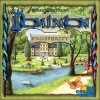

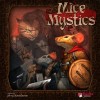
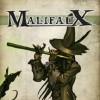

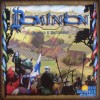


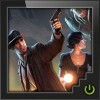
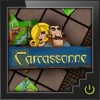


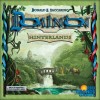

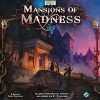
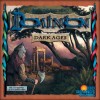
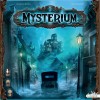
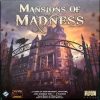


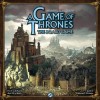




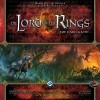
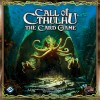
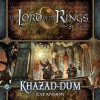



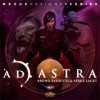



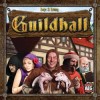
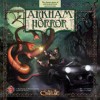
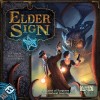
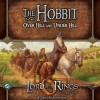





Dominion: Prosperity
Why don’t you make 10 louder and make 10 be the top? Why do you need a Colony when you have a Province, or a King’s Court when you have the Throne Room? Well, going to 11 is way more than that. Dominion: Prosperity offers tons of new combos and ways of interacting with other players; and, all in all, makes for a more dynamic and strategic experience. It’s a very complete expansion that offers a little of everything that could be found in other implementations, wrapped in such an appealing theme as is richness.
Pros: does everything that Dominion: Vanilla does, just better. It adds new mechanics, more interesting decisions, crazy combos and new options to indirectly interact with your opponent(s). It has better art and you could even argue that it’s somewhat more thematic than the base game
Cons: it’s not a standalone game (which can be easily fixed by purchasing the base cards expansion)
What does it add?:
•Treasures that do things
Prosperity introduces 8 kingdom cards that are treasures. This doesn’t only increase the relevance of the card type while playing, making cards such as Thief or Adventurer from the base game more interesting to play; but allows you to do extra things during your buy phase. This gives a valid alternative to relying in +1 action cards, and helps to make the game more dynamic and give you the feel that you do more things each turn.
•Victory points that don’t clutter your hand
Three new action cards give victory point tokens, that count towards your final total without occupying space in your deck. These cards are a blast to play and introduce a new path to victory, that makes amassing points since the beginning of the game a viable and fun strategy.
•Cards that do something without being played
As a matter of fact, it wasn’t Hinterlands, but Prosperity, that introduced the “when you buy it” mechanic. Mint is a quite interesting card that trashes all treasures in play when you buy it. Which can be a bad thing… or a very good one. Furthermore, Peddler varies its cost depending on the amount of actions you’ve played, and Grand Market won’t allow you to buy it if you have coppers in play. These new rules spice up the game and make for more interesting and varied card interactions.
•A reaction that doesn’t respond to an attack
Again, a mechanic that many think was introduced in Hinterlands was already present in Prosperity. Watchtower is a reaction card that can be shown when you gain a card to trash it or put it on your deck. This allows you not only to get rid of a curse you were supposed to gain, but to plan your next turn by pilling new cards that combo between each other on top of your deck.
•Cards that do something while in play
Several cards of prosperity do something while in play: they give you points when you buy a card, or give you gold, or reduce the cost of other cards. This, again, is a great opportunity for interesting combos and dynamic play styles to shine.
•Cards that allow you planning your next turn
Another feature that was thought to be unique of other expansions such as Seaside an its duration cards. The already mentioned Watchtower, and Royal Seal, allow you to put some of the cards you gain on top of your deck, thus planning your next turn and adding a new strategic layer.
•A card that searches your discard pile
Counting House might not be the most exciting card in this set, but it does allow for something you could not do with the base set: get cards from your discard piles. Even if, in this case, they are just coppers, this adds a new dimension to your deck.
•New kinds of indirect interaction
This is my favorite one. Dominion is often seen as a “multiplayer solitaire”, and there is some truth in this accusation. The new attacks, reactions and cards that involve other players do something to alleviate this problem; but is the subtle way in which cards such as City, Trade Route or Contraband allow players to influence the strategy of their opponents that I love. At first, City is nothing more than a expensive Village, but as piles get depleted, its value increases (which, by the way, is quite thematic in how the city develops, becoming more and more important as time goes by). Trade Route is next to worthless before players start buying victory cards. And Contraband is a +1 buy cheap Gold that allows your opponent to stop you from buying the card he choses, opening some space to bluffing and direct player interaction.
•Platinum and Colonies
These are new cards that can be added to the supply when playing with Prosperity cards. A new treasure with a value of 5 and a new victory card giving 10 points, at first it might seem that they simply extend the game, becoming the new de facto Gold and Province. But they are much more than that: they offer new choices and open space for new, long term strategies. The duration of the game is not affected that much as it could be thought, and the earlier turns are, if something, more intense and interesting than before.
Should you get it?: Well, yes! If you are browsing the web trying to decide which expansion to get next, do yourself a favor: go and buy Prosperity. You will have more time for doing something fun such as playing, and you won’t be disappointed.
Although quite often described as “a bunch of cards that are more expensive and bigger versions of those from the base game”, that only stands true for a very limited number of cards (I’m looking at you, King’s Court). Most of the cards on this expansion add some unique and interesting mechanic, without being all flashy about it like others are, such as Dominion: Seaside and its orange duration cards; which might be the reason that said mechanics are sometimes overlooked.
On the other hand, if you are new to Dominion and just exploring the expandability of the game, do yourself a favor and forget the base game: get the base cards expansion and Prosperity. You’ll get the same simple and elegant mechanics from the vanilla implementation, together with a ton of interesting card interactions and huge replayability.
TL;DR: if old basic Dominion has become stale, or you are new to it and would like to get introduced to this classic masterpiece of a deck builder, Prosperity is what you are looking for.